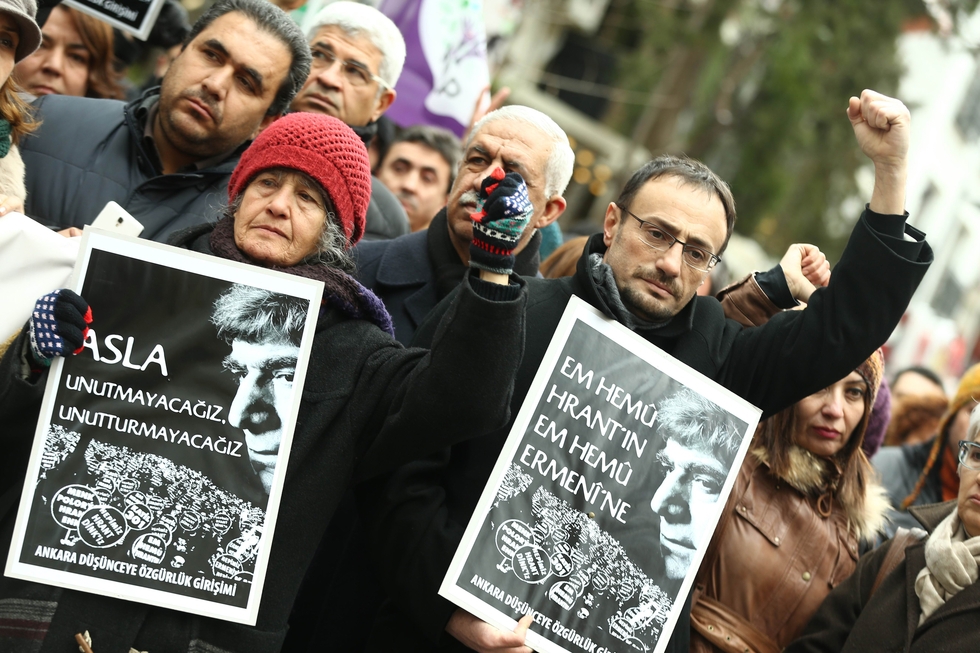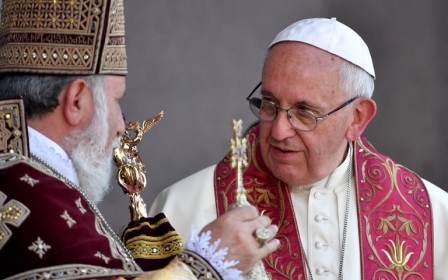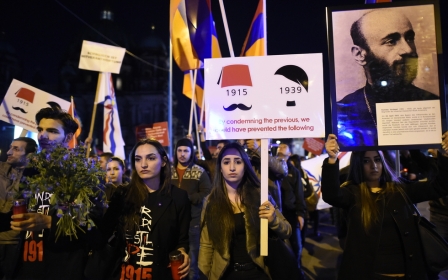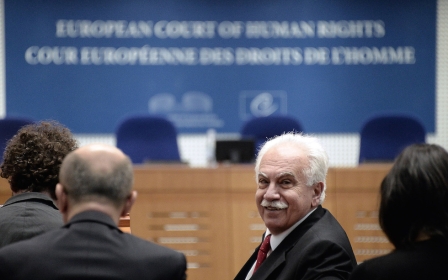New footage implicates alleged coup plotters in Dink murder

The murder of Armenian-Turkish journalist and activist Hrant Dink in 2007 by a Turkish ultra-nationalist shocked the nation, highlighting the still tense relationship between modern Turkey and the legacy of its treatment of its Armenian minority.
Though 17-year-old Ogun Samast was convicted of the crime, supporters and relatives of Dink have long claimed state involvement in his murder. Evidence began to seep out indicating that, at the very least, police officers may have been aware of the plot to kill Dink, but did not act. A video clip released by CNN Turk appeared to show Samast posing with a Turkish flag next to a police officer.
In January 2015, two arrest warrants were issued for police officers over claims of negligence in the Dink murder case, further raising suspicions.
This week new video footage was released by pro-government media, which ostensibly shows six former intelligence officers in close contact with Samast on the day of the killing.
The men in the footage, which was released nine years after the killing took place, are currently under arrest under suspicion of links to US-based cleric Fethullah Gulen, whom the Turkish government blames for a coup attempt on 15 July.
A report in Daily Sabah also claimed that Colonel Muharrem Kose, who was arrested and identified by unnamed state media sources as the leader of the coup attempt, was responsible for the Dink killing.
Hrant Dink had been one of the most prominent advocates of the rights of Armenians within Turkey, who officially number around 70,000 people, but may include many more if crypto-Armenians - those Armenians who hide their culture and religion fearing reprisals - are taken into account.
At the time of his death, Dink faced prosecution over allegedly violating Article 301 of the Turkish constitution, “insulting Turkishness”.
Specifically, his comments in support of the recognition of the Armenian genocide - the 1915 mass killings of up to 1.5 million Armenians by Ottoman forces - provoked outrage and government censure.
By the time of his death, Dink had reportedly received around 2,600 death threats, primarily from ultra-nationalists.
Following Hrant's death, his son Arat was convicted of "insulting Turkishness" and given a one-year suspended sentence.
Some commentators, including those with links to the Gulen movement, have criticised the attempts to link the killing with the Gulenists, accusing state forces of trying to cover up for their own crimes.
Adem Yavuz Arslan, a journalist from Bugun (which is considered by many to have links to Gulen), pointed out that his own investigations had revealed evidence of state involvement in the Dink killing years ago.
”Those who committed the murder yesterday are now seeking to gain benefits over Dink today," he said on Twitter on Monday.
"They present things which I have been talking about with evidence for years as new information and evidence today in a bid to make use of them in their witch-hunt.”
Activists have warned that Armenians in Turkey continue to face suspicion and discrimination.
A poll released in 2011 suggested that 73.9% of Turks held negative views about Armenians, just ahead of Jews and Greeks.
Some Armenians have expressed fear over a surge in nationalist sentiment in Turkey, which often targets Armenians.
“I stopped wearing my necklace that has an ornamental cross on it a few months back. Not because I wanted to but due to fear,” said Turkish-Armenian Jaklin Solakyan, speaking to Middle East Eye in April.
“I am really fed up of being denigrated and discriminated against. This is my country, and I am an equal citizen. Why do we need to be constantly targeted because we are minorities?”
In particular, the issue of the Armenian genocide is a taboo subject in Turkey, where the government continues to argue that the killings that took place in 1915 did not constitute a genocide and saw an equal number of Turks, Kurds and Armenians killed.
Turkish government officials threatened to break off ties with Germany after the parliament voted to recognise the Armenian genocide in early June.
New MEE newsletter: Jerusalem Dispatch
Sign up to get the latest insights and analysis on Israel-Palestine, alongside Turkey Unpacked and other MEE newsletters
Middle East Eye delivers independent and unrivalled coverage and analysis of the Middle East, North Africa and beyond. To learn more about republishing this content and the associated fees, please fill out this form. More about MEE can be found here.




